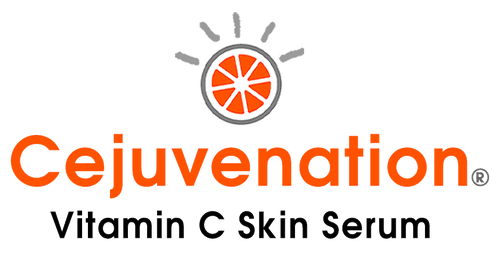Frequently Asked Questions
-
Why apply Vitamin C to your skin?
Vitamin C is a powerful antioxidant, collagen booster, and skin brightener. So it can improve the look of uneven pigmentation, dark spots, lines and wrinkles. And while most animals are able to synthesize Vitamin C within their bodies, human beings cannot and must get Vitamin C from external sources.
-
Why use the Ethyl Ascorbic Acid form of Vitamin C?
Ethyl Ascorbic Acid is a stable form of Vitamin C that can penetrate the skin’s deeper layers without causing skin irritation. Also a powerful antioxidant, Ethyl Ascorbic Acid fights free radicals and protects the skin from environmental stressors to prevent premature aging. Ethyl ascorbic acid increases the production of amino acids in the skin and boosts collagen production so skin feels smoother and plumper. By disrupting the production of melanin, Ethyl Ascorbic Acid helps fade age spots and hyperpigmentation. Being mildly exfoliating, Ethyl Ascorbic Acid and helps speed up skin cell renewal to reveal clearer, brighter-looking skin.
-
Why avoid the Ascorbic Acid form of Vitamin C?
The Ascorbic Acid form of Vitamin C is highly unstable, so it can oxidize quickly when exposed to air, light and water. And once oxidized, Ascorbic Acid becomes useless and potentially bad for your skin. Being highly acidic, the Ascorbic acid form of Vitamin C can cause your skin to become red and irritated.
-
Cejuvenation contains silicone, should I be concerned?
Many of us are surprised to learn that silicones are non-toxic, non-irritating and benefit the skin by preventing water loss. Silicones also help evenly deposit active ingredients and leave a velvety, matte finish.
-
How do I use toner with Cejuvenation?
Apply toner before applying Cejuvenation.
-
Can I use Cejuvenation with moisturizer and makeup?
Apply moisturizer and makeup after applying Cejuvenation
-
Will Cejuvenation make my skin more sensitive to the sun?
Yes! The active ingredients in Cejuvenation will make your skin more sensitive to the sun. So, always apply a broad spectrum sunscreen over Cejuvenation before sun exposure.
REFERENCES
Journal of Cosmetic Dermatology, Volume 11 (4) – Dec 1, 2012, Stability, transdermal penetration, and cutaneous effects of ascorbic acid and its derivatives
Iliopoulos, F., Sil, B., Moore, D., Lucas, R., & Lane, M. (2019). 3-O-ethyl-l-ascorbic acid: Characterization and investigation of single solvent systems for delivery to the skin. International Journal Of Pharmaceutics: X, 1, 100025. doi: 10.1016/j.ijpx.2019.100025
Liao, W. C., Huang, Y. T., Lu, L. P., & Huang, W. Y. (2018). Antioxidant Ability and Stability Studies of 3-O-Ethyl Ascorbic Acid, a Cosmetic Tyrosinase Inhibitor. Journal of cosmetic science, 69(4), 233–243
